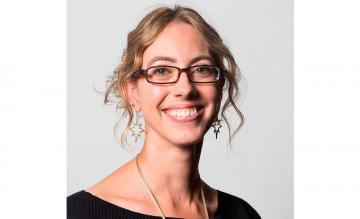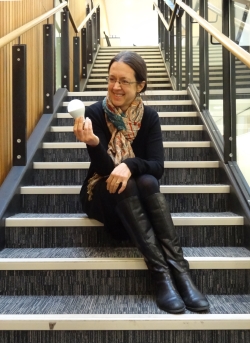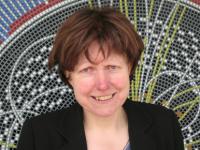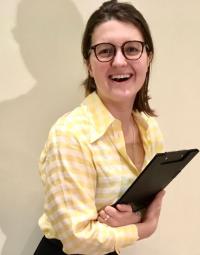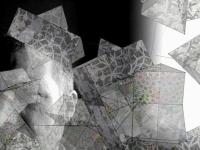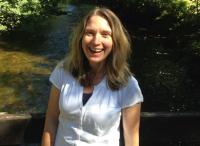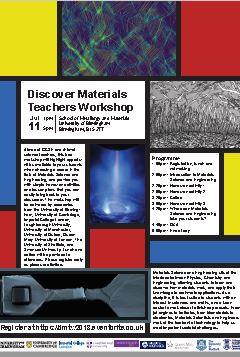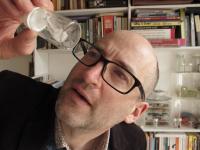We are very keen to engage with teachers and offer several workshops and events throughout the year.
Sign up to our mailing list to receive updates on the outreach events we offer for both you and your students.
Upcoming Events
Details of any upcoming events aimed at science teachers will be added here. Please explore the other web pages available to learn more about our outreach programmes and events for students. Our outreach team may also be available to visit your school to speak to staff and/or students. If you are interested in learning more, please contact us at schools.liaison@materials.ox.ac.uk.
Past Events
Hirsch Lecture 2024, Friday 12th January 2024, 1:30pm-5:30pm
As part of our outreach efforts we will ran a CPD Materials Science workshop for Teachers preceding the biennial Hirsch Lecture. The 2024 lecture was given by Professor Anthony J. Ryan OBE, of the University of Sheffield.
These CPD workshops aim to showcase latest developments in Materials Science and make available resources we have developed for hands-on experiments in schools. These activities are designed to support the teaching of Materials Science and raise awareness of this discipline as an option for your science students to pursue at tertiary education. We also provide an overview of our outreach programme and our applications and admissions process with plenty of opportunities to ask questions.
This event took place in person in the Department of Materials at the University of Oxford. The workshop took place from 1:30pm-4:00pm and will include refreshment breaks. The lecture took place from 4:30pm-5:30pm and was followed by a drinks reception.
Teachers wishing to attend were asked to complete a short online form to register.
Details and abstract for the 2024 Hirsch Lecture:
'Neofossils: bio-based plastics to sequester CO2' - Professor Anthony J. Ryan OBE
We have recently been focussed on a circular economy for polymers, but came to the conclusion that we need to turn the problem on its head. Make more single-use plastic, but using C fixed by photosynthesis taken from the atmosphere this year, not millennia ago. Neo-carbon, not fossil-carbon, to make into plastic and keep it safe - through incorporation in our infrastructure or through curated burial.
Bio-based plastics from agricultural waste become sustainable when produced using renewable energy, not the current mix of >70% fossil energy. Life cycle assessment can identify the tipping point, as the energy system defossilises, when making durable, bio-based plastics makes sense. COP27 aimed to 'keep 1.5 oC alive' by removing 12 billion tonnes of CO2 per year (>25% of current emissions), yet there are no scalable technologies to do this.
Plastics consumption could be a good thing, maintaining the environmental benefits of plastic (eg reduced food waste). The petrochemicals industry could continue to benefit from its capital assets, leaving the oil underground, with a new income stream from carbon sequestration. We could use durable (ie nondegradable) bioplastics to sequester carbon, taking CO2 out of the atmosphere, and we could bury that plastic. In fact, if we converted all the current 300 million tonnes of annual plastic production to non-degradable, fossil-identical, bioplastics, using 100% renewable energy and agricultural waste as the feedstock, we would be able to remove 1 billion tonnes of CO2 from the atmosphere every year.
I will present the evidence to support a new plastics economy to deliver neofossils and remove CO2 from the atmosphere.
Hirsch Lecture 2022, Friday 14th January 2022, 4:30pm
'From Batteries to Solar Cells: Exploring Energy Materials on the Atomic Scale'
-Professor Saiful Islam FRSC FIMMM
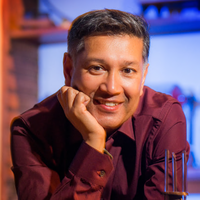
Professor Saiful Islam FRSC FIMMM
Teachers were invited to attend the 2022 Hirsch lecture, which took place online.
Professor Saiful Islam is the incoming Statutory Chair in Materials Modelling at the University of Oxford, and this will be his first public lecture as a member of the Department of Materials.
Abstract: Breakthroughs in clean energy technologies require advances in new materials and underpinning science. A greater fundamental understanding of energy materials depends upon characterisation of their structural, transport and nano-scale behaviour. With the aid of 3D glasses, this talk highlights the use of advanced modelling methods in synergy with experimental techniques to gain atomic-scale insights into novel materials for lithium-ion batteries and perovskite solar cells.
Science Teachers Conference – 1st November 2019 - London
A day conference for secondary school science teachers as part of the Making Materials Matter Project providing opportunities to network with colleagues and learn more about the subject of materials science, where it fits into the current curricular and the importance of science enrichment opportunities. The day will also include the chance to try out practical activities developed and/or delivered on the project.
Education Plenary Talk : 'A review of current evidence on promising educational approaches which are likely to improve the attainment and progression of low-SES students in science education'
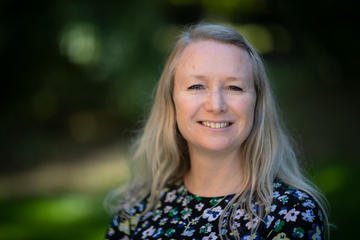
Professor Judith Hillier
This talk will present key findings from a systematic and rigorous review of the research literature recently conducted to gather and evaluate the evidence for promising educational approaches which are likely to improve the attainment and progression of low-SES students in science education. The evidence reviewed suggests that interventions designed to support the development of students’' scientific reasoning, their literacy skills and their metacognitive skills can have beneficial effects, provided certain conditions are met and that technology may make a positive contribution. There is also evidence to show the benefits of interventions designed from a socio-cultural perspective, and these can be categorised as follows:
1. Bringing students into a science ‘place’ e.g. university laboratories or a science museum
2. Bringing scientists or extra-curricular science activities into schools
3. Developing teachers’ understanding of students’ perspectives
The implications of these findings for teachers, teacher educators and policy makers will be discussed."
About the Speaker
Judith Hillier is Associate Professor of Science Education at the University of Oxford Department of Education. Her research includes initial teacher education, with a focus on how and why people become physics teachers, explanations in science education, and the under-representation of women in physics.
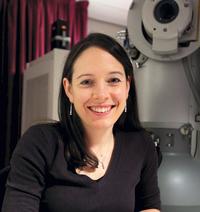
Professor Sarah Haigh
Materials Plenary Talk: 'Unexpected Atoms in a pencil trace'
Professor Sarah Haigh, The University of Manchester
About the Speaker
Sarah Haigh is a Professor of Materials Characterisation at the University of Manchester, UK. Her research interests centre on improving our understanding of nanomaterials properties using transmission electron microscope (TEM) imaging and analysis techniques.
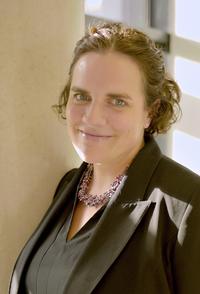
Jo Foster
Institute of Research in Schools : 'How ordinary schools are turning teenagers into Research Scientists'
Jo Foster, IRIS
The Institute for Research in Schools (IRIS) supports students to do cutting-edge, university and postgraduate-level research while they are still in school. Across the country, students are involved in projects as diverse as looking for anomalies in data from the Spitzer telescope or decoding the genome of a nasty parasite to help to find a cure. This approach inspires and motivates students, while enhancing the curriculum and supporting them in choosing exciting STEM careers. Our evidence shows that supporting students with research also re-energises teachers and reminds them why they chose Science in the first place! Come and find out how your school can get involved in this free and amazing programme of in-school research.
About the Speaker
Jo has been involved in the teaching of Science for 19 years and was previously Vice Principal at Camborne Science and International Academy in Cornwall, acting as Director of Nexus, the school’s specialist STEM centre and Cornwall School of Maths and Science (2015-2019). After successfully working with IRIS on a number of research projects within her school, she became a Trustee of IRIS in 2017. She was appointed as Director of IRIS in August 2019. Jo is also the STEM Education Trustee for the Science Museum Group and has been a member of the Royal Society Education Committee since 2018.
Oxford University Teacher Summer School – 11th -12th July 2019
This is a CPD accredited two-day residential summer school for teachers at state-funded schools and colleges in the UK. The summer school aims to support teachers to stretch and challenge their most able students, and equip them with the best possible advice and guidance on selective university admissions. During the summer school, teachers receive detailed support and guidance about the Oxford admissions process, experience taster sessions for different academic subjects, and learn from mock interviews.
Making Materials Matter Workshop – Jayne Shaw, Access & Outreach Manager
09:30-10:30 Thursday 10th January 2019
ASE Annual Teachers Conference, University of Birmingham
This workshop will share the resources developed through the Making Materials Matter project and look at the direct links these have with the KS3-4 curriculum. We will discuss the sustainability of the project and the potential support we can offer teachers with regards enriching the curriculum with the aim of inspiring the next generation of scientists.
Further information and booking details can be found at https//www.ase.org.uk/annual-conference
Hirsch Lecture 2019
4:30pm, Friday 8 February 2019
As part of our outreach efforts we will be running a CPD Materials Science workshop for Teachers preceding the biennial Hirsch Lecture which will be delivered by Professor Anne Neville on Friday 8th Feb 2019 at 4.30pm.
There will be a pre-lecture tea and post-lecture drinks reception, and we would like to use this event as an opportunity for science teachers to visit and enjoy the workshop and/or the lecture and hospitality.
The workshop aims to showcase latest developments in Materials Science and make available resources we have developed for hands-on experiments in schools. These activities are designed to support the teaching of Materials Science and raise awareness of this discipline as an option for your science students to pursue at tertiary education. We will provide an overview of our applications and admissions process and plenty of opportunities to ask questions.
Making Materials Matter 2018 Teachers Conference
Friday 13th July 2018, Ironmonger's Hall, London
An exciting conference for UK teachers with opportunities to network with colleagues and learn more about the subject of Materials Science, where it fits into the current curricular and the importance of science enrichment opportunities. The Making Materials Matter conference is funded by The Company of Ironmongers and held at the Ironmongers Hall in London concludes a 6-month KS3 materials science project run collaboratively by Oxford & Cambridge Universities and Imperial College London. All resources developed from the project will be made freely available to teachers, enabling them to link curriculum content to materials science.
Plenary speaker Professor Louise Archer will be delivering the education plenary on her important research on science capital 'Improving student engagement with STEM: A science capital approach' followed by 'Using the science capital teaching approach in practice: workshop'.
Plenary speaker Professor Rachel Oliver will be delivering the materials science plenary, ‘Illuminating Materials'
